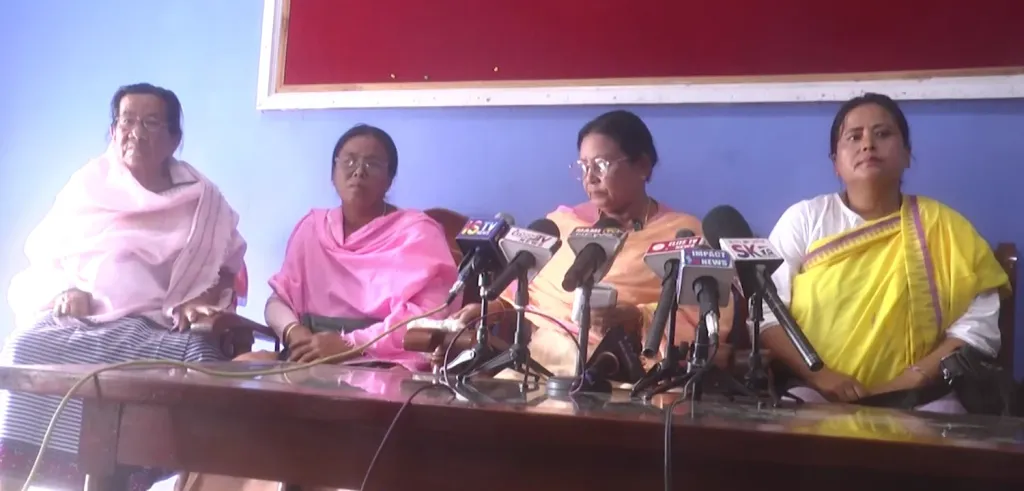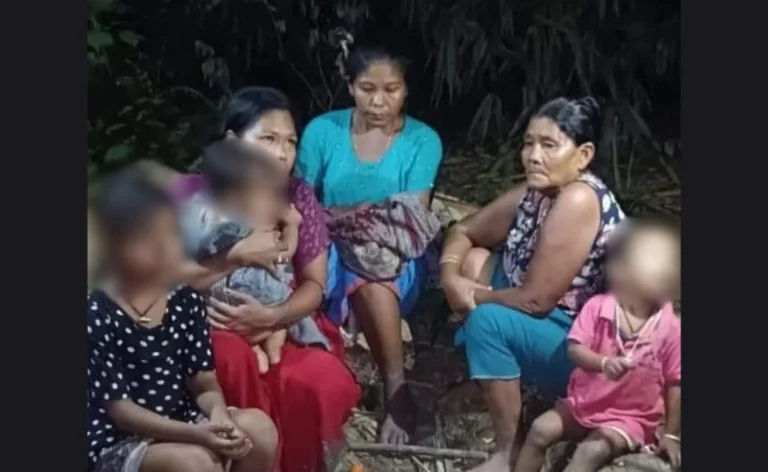Bail Granted to Attempted Rape and Murder Accused: A Call for Justice in Kakching
Summary of the News
In a deeply troubling incident from Kakching, Manipur, bail has been granted to an individual accused of attempted rape and murder. The family of the victim has expressed their disappointment, calling for swift justice and stricter legal action to ensure that such crimes are not overlooked. The case has sparked outrage, with the victim’s family and supporters rallying for justice and advocating for women’s safety.
Bail Granted to Attempted Rape and Murder Accused: A Closer Look at Justice in Kakching
In a country where the judicial system is meant to protect the vulnerable, cases like the attempted rape and murder in Kakching, Manipur, make us question the robustness of that system. Recent events have thrown a spotlight on a serious issue — the release of an individual accused of such heinous crimes on bail. This has not only shaken the victim’s family but also caused a wave of concern among many citizens regarding the gaps in our legal processes.
The Case that Shook Kakching: A Call for Justice
Manipur, known for its cultural heritage and tight-knit communities, has recently been rocked by the shocking case of attempted rape and murder. The alleged perpetrator was granted bail, and this decision has stirred massive outrage, especially among the victim’s family and women’s rights activists. How did it come to this? Shouldn’t the accused remain behind bars, at least until a fair trial is completed?
While the details of the case are undoubtedly distressing, it is the aftermath that has caused an even bigger uproar. The victim’s family, understandably devastated, has called for justice. They want not only legal retribution but also a reassessment of how such sensitive cases are handled by the courts. The release of the accused on bail has left many feeling that the scales of justice have been tipped unfairly, giving more weight to the rights of the accused than the safety of the victim.
Bail for Serious Crimes: A Debate Over Legal Loopholes
The concept of bail is rooted in the legal principle that one is innocent until proven guilty. While this is a fundamental right, it becomes contentious when applied in cases of severe crimes like attempted rape and murder. Granting bail in such instances raises several questions. What message does this send to the victim’s family and the community at large? Can the judicial system be trusted to protect its citizens?
Bail is often seen as a measure to ensure the accused can continue their daily life while awaiting trial, but when the crime is as severe as this, does that principle still apply? There is a delicate balance between the rights of the accused and the rights of the victim. However, in cases of violent crimes, public safety and the need for justice can tip the scale, leading to debates about whether bail should be denied more frequently in such cases.
The Victim’s Family: Standing Strong for Justice
In a situation like this, the trauma for the victim and their family is doubled when they see the accused walk free before the trial is concluded. In this specific case from Kakching, the victim’s family is pleading for justice. They argue that the accused’s release has heightened their fears and pain, making them feel unsafe and unheard by the system meant to protect them.
When the courts grant bail, the victims and their families often feel like justice is slipping through their fingers. The accused is out on the streets while the victim is left picking up the pieces of their shattered life. This specific family in Kakching has taken their grievances to the public, asking for more substantial measures from the judiciary and government to prevent similar occurrences in the future.
Women’s Safety and Legal Accountability
Women’s safety has long been a contentious issue in India. Despite the country’s progress in numerous fields, crimes against women remain alarmingly high. When cases of attempted rape and murder are reported, the public expects swift and severe action from the judicial system. However, as seen in this instance from Manipur, gaps in legal processes can often leave victims feeling betrayed by the very system that is supposed to ensure justice.
The debate over bail in such cases is also tied to the broader issue of women’s safety. Women across India are looking for stronger measures, not just from the courts but from society as a whole. Granting bail to those accused of heinous crimes can often lead to a public perception that such crimes are not taken seriously enough. This perception can further weaken the trust women place in the legal system and its ability to protect them.
The Role of Community and Public Outcry
Public opinion plays a powerful role in shaping the course of justice, especially in a democracy like India. In cases like this, where the accused has been granted bail, community members, activists, and the victim’s family are coming together to demand justice. Protests, social media campaigns, and public rallies are all common methods used to raise awareness and pressure the system to take swift and fair action.
In Kakching, the victim’s family has received an outpouring of support from the local community. They have organized rallies, urged the media to cover their plight, and appealed to higher authorities to step in and ensure justice is served. In many ways, the public outcry serves as a reminder that while the legal system might have its shortcomings, the people still have the power to call for change.
The Need for Stricter Laws
While India has numerous laws aimed at protecting women, there is a growing call for stricter enforcement. In cases like the attempted rape and murder in Kakching, people are demanding that bail should not be granted so easily in cases involving such grave allegations. There is a pressing need for reforms that ensure that victims do not feel re-victimized by the legal process.
India has seen legal reforms in the past, particularly after the 2012 Delhi gang-rape case, which led to amendments in the laws surrounding sexual assault. However, many believe that more needs to be done. Stricter provisions should be introduced, especially when it comes to granting bail to individuals accused of violent crimes against women. Without such reforms, victims and their families will continue to face an uphill battle in their pursuit of justice.
Restoring Faith in the Legal System
The legal system is meant to protect the innocent and punish the guilty, but cases like this often make people question its efficacy. Restoring faith in the judicial process is critical, not just for the victim and their family but for society at large. For this to happen, the system must take into account the gravity of such crimes and ensure that justice is served in a way that reflects the seriousness of the offense.
In the Kakching case, granting bail has raised serious concerns about how the judiciary handles sensitive cases. To restore faith in the system, there needs to be a thorough reassessment of the criteria used to grant bail in such cases. More importantly, the courts must be mindful of the message their decisions send to the victim, the accused, and the broader community.
Conclusion: The Road Ahead for Justice
The recent decision to grant bail to the accused in the Kakching case has highlighted the need for a more robust legal framework that takes women’s safety and victims’ rights seriously. While the judicial process must protect the rights of the accused, it is equally important to ensure that victims do not feel further victimized by legal loopholes.
The case has sparked a broader discussion about the state of women’s safety in India and the need for stronger legal protections. As the victim’s family continues to call for justice, their plight serves as a reminder that the fight for women’s safety is far from over.
FAQs
- What is the Kakching case about?
- The Kakching case involves an individual accused of attempted rape and murder who was granted bail, sparking public outrage and calls for justice.
- Why was bail granted in this case?
- Bail is a legal provision allowing the accused to remain free while awaiting trial, but it is contentious in serious crimes like attempted rape and murder due to the potential risk to victims and the community.
- How is the victim’s family reacting to the bail decision?
- The victim’s family has expressed disappointment and fear, calling for stricter legal measures and justice for the victim.
- What is the public’s response to the bail decision?
- The public, along with the victim’s family, has voiced outrage, with many calling for legal reforms and stricter enforcement of laws to protect victims of violent crimes.
- What reforms are being suggested to prevent such incidents?
- There are calls for stricter bail provisions in cases involving violent crimes, particularly those involving sexual assault, to prevent the accused from walking free before trial.




